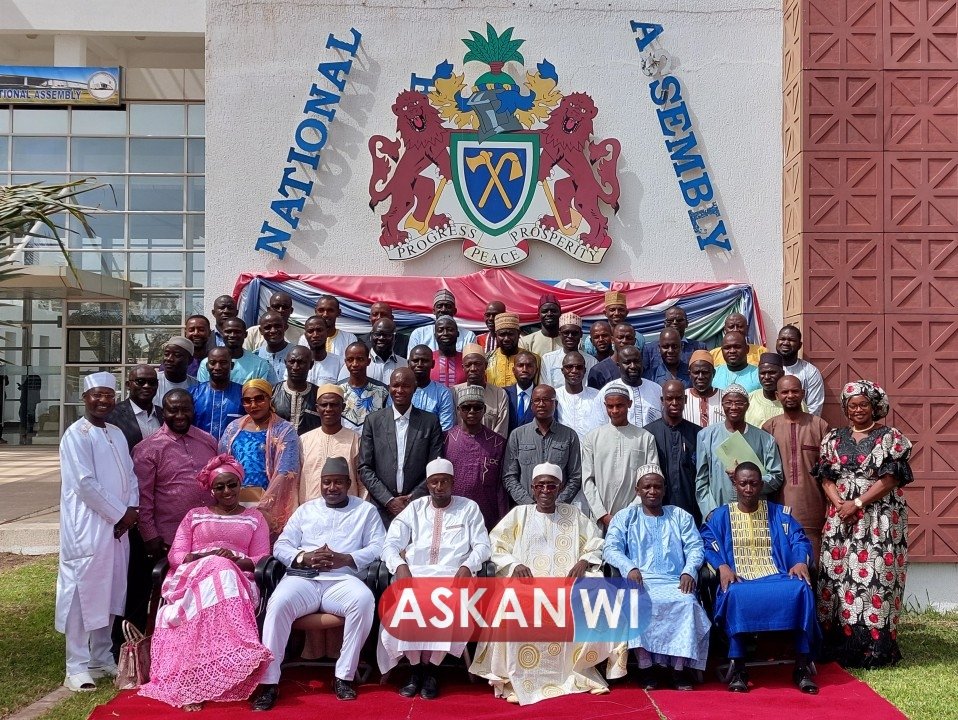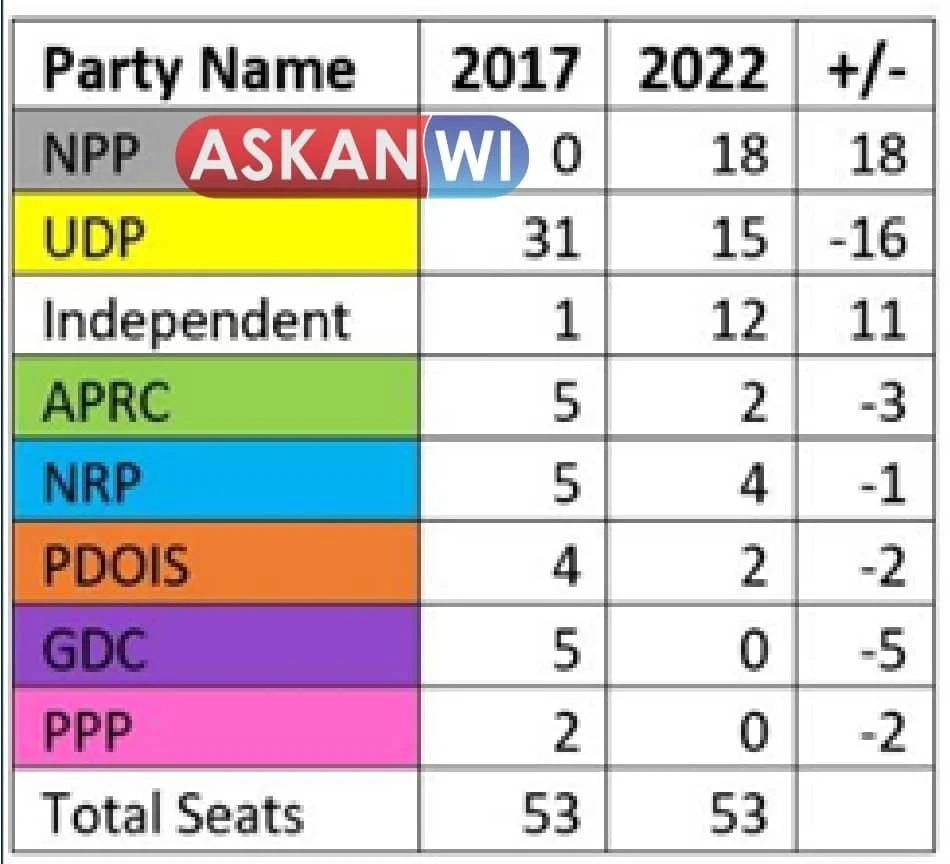Minority Caucus Rejects 2024 Draft Constitution
Sixth Legislature © Askanwi
By Yusef Taylor, @FlexDan_YT
The Gambia’s Sixth Legislature has rejected the 2024 Draft Constitution during its Second Reading on 7th June 2025, marking the second time Parliament has voted down the people’s demand for a new national charter.
According to parliamentary reporter Muhammed MS Bah, “out of the 56 members present, 35 voted in favour of the Draft Constitution, while 21 voted against it. No member abstained.” Although the National Assembly comprises 58 members—53 elected and five nominated—the Speaker typically only votes to break a tie, indicating that at least one member was absent during the vote. Askanwi reporters will seek a verified list of attendees once the minutes of the session are tabled and adopted.
Former GPU President Bah further explained that “despite gaining a simple majority, the draft constitution failed to meet the legal threshold of not less than three-quarters of all National Assembly members. As a result, the 2024 Draft Constitution has been rejected.”
Bah’s mid-session report revealed that “the motion was suspended for lunch and prayers until 15:45.” By that point, 20 parliamentarians had spoken—ten in support and ten opposed—suggesting a closely contested vote. However, with a three-quarters majority required (at least 42 votes), it was already clear that the draft would fall short.
By lunchtime, Bah observed that six independent MPs had spoken, with an even split—three in favour and three against. Meanwhile, seven United Democratic Party (UDP) members spoke in opposition, while two members each from the National People’s Party (NPP), the People’s Democratic Organisation for Independence and Socialism (PDOIS), and the Alliance for Patriotic Reorientation and Construction (APRC) expressed support.
2020 Draft Constitution vs the 2024 Draft Constitution © Askanwi
The 2024 Draft Constitution faced repeated delays before even reaching this stage. It was initially gazetted in August 2024, then tabled for a first reading on 23rd December 2024. The original schedule had set the first reading for 27th November and the second for 21st December, but this was revised, with the second reading removed from the agenda altogether.
The postponements continued. Askanwi published an exclusive report revealing that the Second Reading was cancelled at one point due to high-level engagements with Dr Ibn Chambas of International IDEA.
The draft’s fate was further complicated by President Adama Barrow’s delayed 2025 State of the Nation Address (SONA), which was removed without explanation from the approved agenda of the First Ordinary Session. Both the SONA and the Draft Constitution’s Second Reading reappeared on the agenda during the Second Ordinary Session. Yet, President Barrow said very little about the draft, merely noting that “key achievements in this area [Legal and Justice Matters] include the completion and tabling of the revised Draft Constitution.”
This omission hinted that the Majority Caucus might not be invested in the bill's success. However, all signs indicate they did vote in favour. Still, as many observers note, there’s another side to the story.
Public Demand vs Political Division
Prior to the draft’s first reading, a group of protesters under the Coalition of Progressive Gambians submitted a petition urging the National Assembly to set aside the 2024 Draft Constitution and instead reintroduce the widely consultative 2020 Draft Constitution.
Public opinion supports this view. According to pollster AfroBarometer, 51% of respondents disagreed or strongly disagreed with Parliament’s rejection of the 2020 Draft Constitution, while only 29% agreed with the decision. Furthermore, 67% said they support the reintroduction and amendment of the 2020 Draft, while only 14% opposed it.
Overall, 71% of Gambians believe the country needs a new constitution, with just 24% saying otherwise—highlighting a clear gap between the public’s will and Parliament’s actions.
Parliamentary Arithmetic and Political Realities
Under current parliamentary composition, the Majority Caucus requires support from the Minority Caucus to reach the 42-vote threshold needed to pass a constitutional bill. With 15 UDP members and five “No to Alliance” independents, the Minority Caucus holds 20 votes—enough to block any motion if they vote as a bloc.
The Majority Caucus includes 18 NPP members, four nominated members (who can vote in the first round), four NRP, and two PDOIS members—adding up to 28 votes. That leaves nine swing voters, which still falls short of the supermajority needed. Hence, passing the bill depended on securing support from at least 14 members of the opposition—support that never materialised.
Warnings That Went Unheeded
There were early warnings this might happen. During a December 2023 parliamentary engagement hosted by the Westminster Foundation for Democracy (WFD), Hon. Alhagie S. Darboe, UDP MP for Brikama North and Minority Leader, expressed strong opposition to the 2024 Draft. He told Dr Ibn Chambas that “the 2020 Draft Constitution was rejected before it was even laid in Parliament,” and warned that a repeat would occur unless proper steps were taken. He emphasised that “it was the political parties and politicians who rejected the 2020 Draft Constitution.”
Also present was Hon. Saikou Bah of Basse, a first-time NPP MP and co-chair of the Inter-Party Committee. He had suggested that once the draft was tabled, it could be sent to a committee for further consultation and input from all stakeholders.
In the end, the Minority Leader’s prediction came true. The failure to secure cross-party consensus has once again derailed The Gambia’s constitutional reform efforts, leaving citizens to wonder: Will the people ever get the new constitution they overwhelmingly support?



